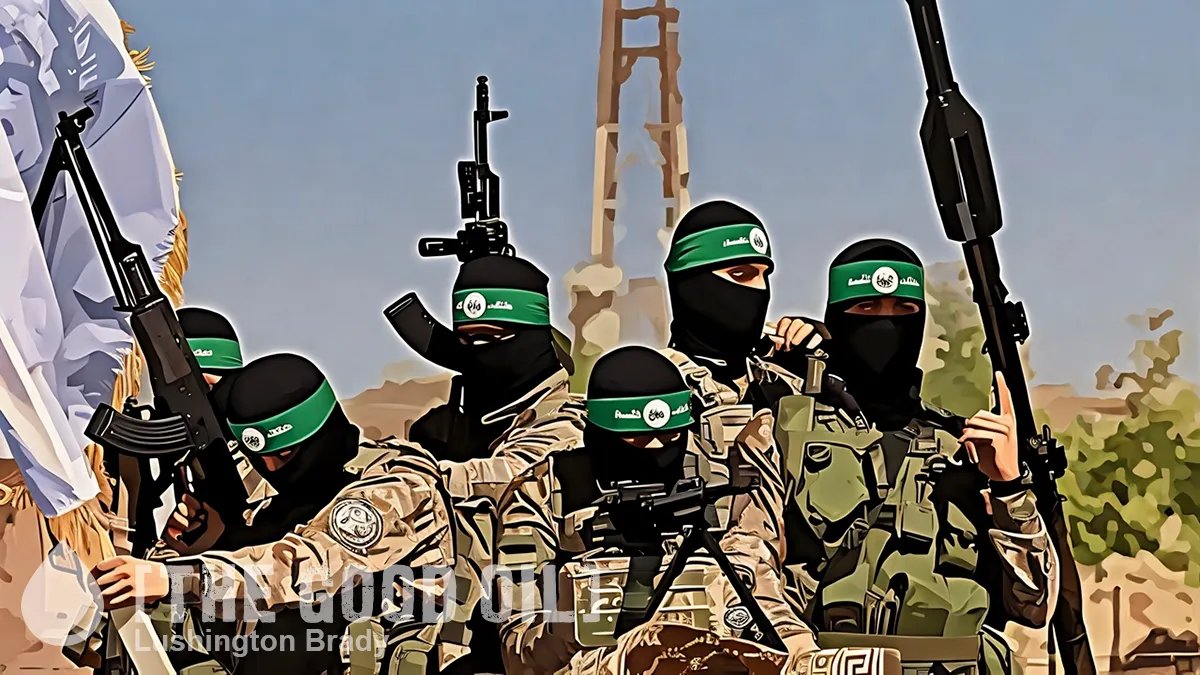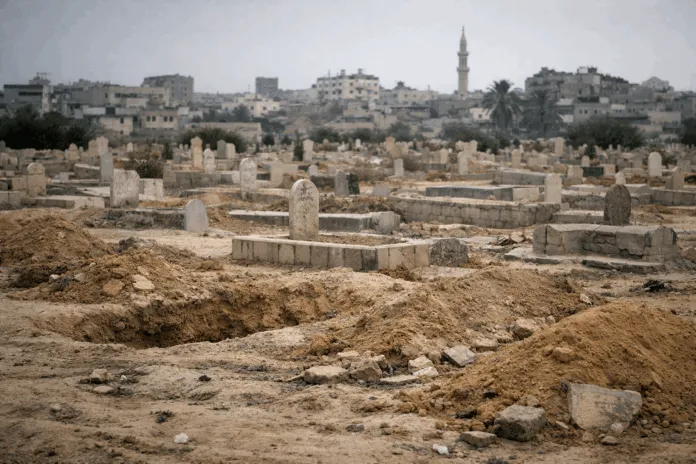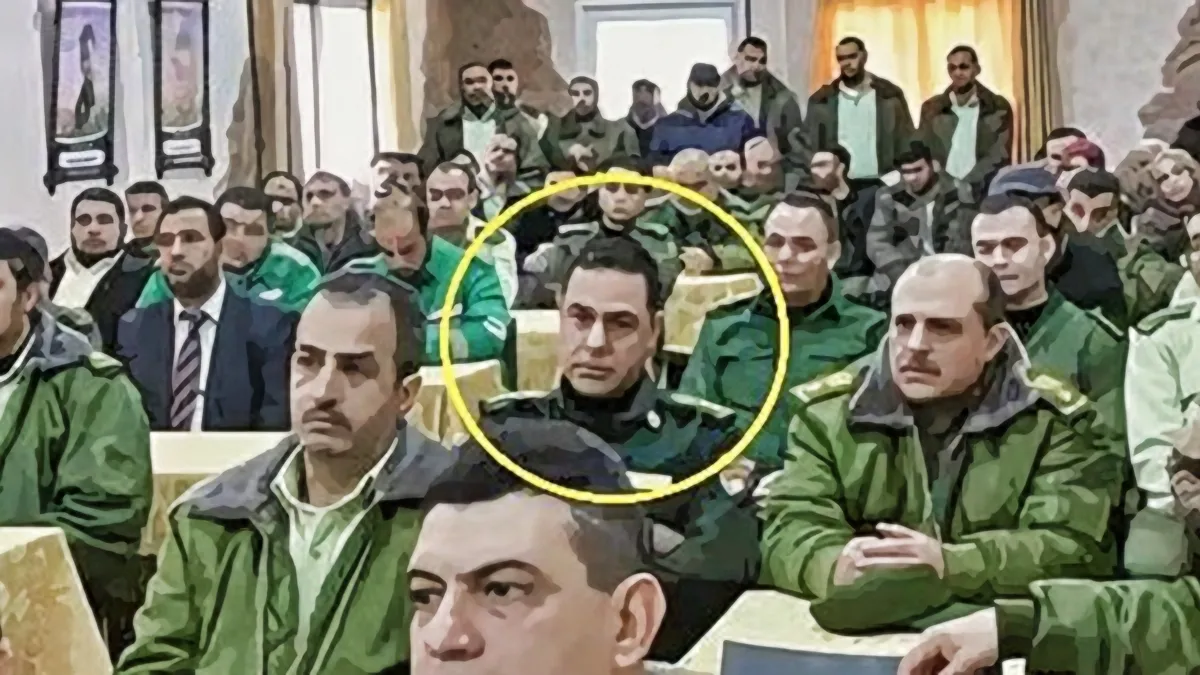Table of Contents
BICOM
BICOM provides accurate, timely and balanced information that is read by officials, experts, journalists and many others.
What’s happening: The Israeli negotiators are still waiting for answers from Hamas over the latest iteration of a deal to release some of the hostages.
- Speaking earlier this week in Saudi Arabia, US Secretary of State Blinken described the proposal as “extraordinarily generous on the part of Israel”, adding “the only thing standing between the people of Gaza and a ceasefire is Hamas.”
- The latest proposal is being presented as an Egyptian initiative, with Israeli consent, aimed at releasing up to 33 hostages in exchange for a six-week pause in fighting.
- The hostages are thought to include women, elderly, and ill hostages and would be exchanged for 30 to 50 terrorists held in Israeli prisons for each hostage.
- Israel has also reportedly agreed to withdraw from the Netzarim corridor that bisects the Strip and to allow residents to return to the northern Gaza.
- However, Hamas are thought to be continuing to demand a permanent ceasefire and an end to the war.
- Israel is only prepared to agree to a temporary ceasefire so that it can still complete the operation in Rafah after the pause.
Threat of the ICC: In parallel there is heightened concern that senior Israeli leaders face the threat of arrest warrants being issued if they were to travel abroad.
- The potential targets for arrest for alleged war crimes could include Prime Minister Netanyahu, Defence Minister Gallant, Chief of Staff Halevi and other Israeli politicians.
- It is unclear how serious this threat it, but Israeli officials are working behind the scenes to prevent this.
- Netanyahu related to this threat yesterday as “an outrage of historic proportions.” He added, “international bodies like the ICC arose in the wake of the Holocaust committed against the Jewish people. They were set up to prevent such horrors, to prevent future genocides. Yet now the International Court is trying to put Israel in the dock. It’s trying to put us in the dock as we defend ourselves against genocidal terrorists and regimes, Iran of course, that openly works to destroy the one and only Jewish state.”
- He noted, “it will also be the first time that a democratic country fighting for its life according to the rules of war is itself accused of war crimes.”
- Adding, “it takes endless measures to prevent civilian casualties, measures that no other army takes. It does so while fighting a terrorist enemy which uses its own civilians as human shields… So, while Hamas shows no care for the lives of Palestinians and steals humanitarian aid meant for civilians, Israel is facilitating a surge of humanitarian assistance to Gaza. And we do this to ensure that the Palestinian population’s humanitarian needs are met.”
- “Israel is not even subject to the court’s jurisdiction and it has an independent legal system that rigorously investigates all violations of the law.”
- Netanyahu’s full remarks can be seen here.
- The Prosecutor of the International Criminal Court Karim Khan visited Israel a few months ago, when he toured the sites of the October 7th massacres and met with released hostages.
- Israeli media has reported that the Prime Minister has asked the hostages forum to intercede on his behalf after they established a repour with Khan.
- It is also thought that Khan would consult with the British government among others before proceeding with a warrant.
- In a separate / related decision the Israeli government has allowed British judges to visit captured Nukhba terrorists held in Israeli prison.
Context: For 207 days, 133 hostages are still being held captive in the Gaza Strip. It is unclear how many remain alive.
- Whilst Israel waits for a response from Hamas, the military remains ready for an operation into Rafah, awaiting a decision by the political echelon.
- An operation in Rafah has been postponed at least twice already due to international pressure from Israel’s allies, but if Hamas does not take the current deal an operation appears inevitable.
- This time, Israel has helped facilitate expanded humanitarian zones with tens of thousands of tents in preparation to move the civilian population from Rafah prior to a military incursion.
- The logic for a Rafah operation remains:
- To engage, destroy, and dismantle the remaining elements of Hamas’s military structure.
- To block the smuggling routes from Egypt, which is crucial to preventing the re-armament of the Strip.
- To continue to hunt down the Hamas leadership which, having evaded Israeli forces elsewhere, are now seemingly underneath Rafah.
- If Hamas refuses the latest deal, the dwindling hope remains that some hostages could still be rescued.
- These latest indirect talks are being led by the Egyptians instead of the Qataris. Although Israel remains adamant that they will not commit to end the fighting, the Egyptians are proposing to Hamas that if this pause is successful, they can negotiate a second phased release of the remaining hostages in return for a long term ceasefire.
- Netanyahu is also facing increasing domestic political pressure with both the right wing and centrist flanks, pulling him in opposite directions and threatening to dismantle his coalition (see Israeli media summary below for more details).
- In addition to political pressure, there have been ongoing public demonstrations from the hostages families and their supporters to conclude a deal.
Looking ahead: US Secretary Blinken has arrived in Israel for his ninth visit since the war began, he will meet Prime Minister Netanyahu today and also expected to update him on the potential normalisation agreement with Saudi Arabia.
- Blinken is also scheduled to visit the Kerem Shalom crossing and see first-hand the expanded humanitarian aid entering into Gaza.
ISRAELI IDEAS FOR THE DAY AFTER IN GAZA
This BICOM research paper assesses the variety of Israeli thinking on these and other questions. Drawing on the government’s (limited) official policy, as well as a diverse range of expert proposals, the paper identifies those areas where there is a consensus of opinion and those where different thinkers, despite desiring the same outcome of a demilitarised and deradicalised Gaza Strip no longer able to threaten Israel, reach substantively different conclusions.
Download BICOM’s briefing here
CHALLENGING THE IRANIAN PRESENCE IN THE NORTH
In light of the targeted strike on Iranian Gen. Mohammed Reza Zahedi, this paper gives the latest assessment on the confrontation between Israel and Iran and its proxies.
Read BICOM’s briefing here.
NEW PODCAST
Episode 230 | Aid in the Gaza Strip
In this episode, Richard Pater speaks to Professor Rosa Freedman, an expert in international human rights law. They discuss Israel’s obligations in facilitating aid into Gaza and the current role of NGO’s operating in the Strip. Prof Freedman also explores the politicisation of aid, and the failure of the Red Cross to visit the Israeli hostages since October 7th. Freedman is Professor of Law, Conflict and Global Development at the University of Reading. She is a member of the UN Secretary-General’s Civil Society Advisory Board on preventing sexual exploitation and abuse, a member of the FCDO Steering Committee on the Global Framework, and the Civil Society Workstream Lead on the Prevention Project.
Listen on Apple Podcasts, Spotify and Google Podcasts
VIDEO
The Iran-Israel War and Learning from Frogs: An Interview with Jonathan Spyer
Top Stories From the UK and Israeli Media
The Telegraph, The Times, The Independent, and The Sun all report that Israel will attack the southern Gaza city of Rafah regardless of whether or not a ceasefire and hostage release deal is reached.
The Guardian, The Financial Times, and The Times report that G7 nations have urged officials at the ICC not to announce war crimes charges against Israel or Hamas officials, amid concerns that such a move could disrupt the chances of a breakthrough in ceasefire talks. The Guardian also publishes a piece saying “the Israeli prime minister has good reason to worry, and the defences he has offered so far are unlikely to help him.”
The Guardian, Sky News, BBC News, and The Financial Times all report that The ICJ rejected a request by Nicaragua to issue Germany emergency orders to desist selling arms to Israel, by 15 votes to one. The decision, according to the judgment read in court in The Hague, is largely based on a significant decrease in recent German arms sales to Israel, the largely defensive nature of arms recently sold, and the extensive internal German government processes to consider if arms would be used to prosecute war crimes or genocide.
The Times reports that Donald Trump has accused Netanyahu of not doing enough to stop the October 7 attacks.
The Times reports that, overnight, the police stormed the campus at Columbia University to make arrests of some of the protesters. The Daily Mail adds that students pleaded for ‘basic humanitarian aid’ to be delivered to those illegally occupying Hamilton Hall.
The Sun reports on Iran announcing it has created a new suicide drone to add to its rapidly increasing arsenal of homegrown attack drones. Despite stern international sanctions and an arms embargo, Iran has aggressively expanded its production line of unmanned aerial vehicles (UAVs) enough to waste 170 of them in its flop blitz on Israel.
The Telegraph reports that Israel’s intelligence services have enrolled a swathe of new recruits from within Gaza to aid them in their search for the remaining hostages.
The Daily Mail reports that the Biden administration is considering allowing some Palestinians to live in the United States as refugees.
The Independent reports that Amy Schumer, who has been vocally supportive of Israel through the war, has said: ‘I don’t agree with anything that Netanyahu is doing’.
The I reports that a group of British, American and Middle Eastern businesspeople and philanthropists have set out an ambitious vision for Gaza to be transformed through a programme that includes job creation, a digital revolution, modern transport networks, connections to the outside world and building an elite football team.
The Israeli media is dominated by political tensions facing Prime Minister Netanyahu. Far-right ministers Smotrich and Ben Gvir are threatening to withdraw from the coalition and bring down the government if an operation in Rafah is not pursued and if a hostage deal containing what they consider major concessions to Hamas is agreed to. Israel Hayom quotes Ben Gvir as saying, following a meeting with Netanyahu, “The prime minister promised that Israel would enter Rafah, that the war would not be ended and that there would be no reckless deal.” Netanyahu, he said, “understands full well what it means if these things do not happen.” At a meeting of his Religious Zionism party, Smotrich said “The State of Israel must choose. There is no middle ground: it is either victory or surrender. Accepting the deal that is currently on the table means unequivocally waving a white flag and granting victory to Hamas. This is precisely the point Sinwar planned to reach when he set out to massacre us. Accepting this deal while postponing the conquest of Rafah is exactly the fulfilment of his plan for victory, which is the surrender of the State of Israel.” Against this, Netanyahu faces pressure from centrist war cabinet Minister Eisenkot, who wrote on Facebook: “Six months ago, the security cabinet defined the war’s objectives. Two members of the cabinet have been blackmailing using political threats. This is a serious phenomenon that damages Israel’s national security. I will only be part of a government that makes decisions out of concern for the national interest of the State of Israel, not political considerations.”
Army Radio reports the intervention of Smotrich’s Religious Zionism colleague Minister Orit Struck, who told the station that “Soldiers who left everything behind and went out to fight for the objectives that the government set—and we’re throwing that into the trash in order to now save 22 people or 33 people or I don’t know how many? A government of that kind has no right to exist.” Both Minister Chili Tropper (National Unity Party) and opposition leader Lapid responded to Struck’s remarks. Trooper said: “One can be for the hostage deal proposal and one can be against it, but one can also spare us statements that are obtuse and insensitive towards the suffering of the hostages and their families, of the kind that Minster Orit Struck made.” Lapid responded by saying that a government with 22 or 33 extremist coalition members has no right to exist.
Yediot Ahronot’sMoran Azulay considers these tensions against the backdrop of US pressure against an operation in Rafah. “The argument Netanyahu has consistently made to American presidents— ‘I’ve got domestic political needs; you understand that’—isn’t working anymore after seven months of war, as [the war effort] limps along and the Saudis are waiting in the wings. Biden has shown zero understanding for this. For a year-and-a-half he heard Smotrich wax poetic about the destruction of Huwara, coalition members contemplating in the media about dropping an atomic bomb on Gaza and Ben Gvir’s musings, including his hope [that Biden] would lose the election to Trump. The line of credit Netanyahu was given for his political needs has been squandered. His line of credit has run dry.”
Channel 12 polling shows a majority of Israelis (58 percent) in favour of Netanyahu resigning. The same poll predicts that were an election to be held today, the current coalition would receive 50 seats and the opposition 60, with the United Arab List and Hadash-Ta’al on 5 seats apiece, The poll breaks down as: National Unity Party, 3; Likud, 18; Yesh Atid, 15; Shas, 10; Yisrael Beiteinu, 10; Jewish Power, 10; United Torah Judaism, 8; Hadash-Ta’al, 5; United Arab List, 5; Meretz, 4; Religious Zionist Party, 4. Were a new centre-right party to be formed and led by former Prime Minister Naftali Bennett, former Mossad Director Yossi Cohen and MK Gideon Saar, it is slated to receive 18 seats. Were the Labour Party to be run by Yair Golan, it would cross the electoral threshold and receive 6 seats.
Haaretz reports that two Israeli soldiers killed on Sunday in Gaza appear to have been the victims of friendly fire. An initial IDF investigation indicates that Master Sgt. (res.) Ido Aviv and Master Sgt. (res.) Kalkidan Mehari were killed when an IDF tank shell hit the building in which they were staying, due to a mistaken identification.
Israel Hayom features news of a stabbing attack yesterday in the Old City of Jerusalem, in which a Border Police officer was attacked. The attacker, apparently a tourist from Turkey, was killed.
Haaretz reports on events in the north, where Israeli fighter jets have attacked Hezbollah military targets in five locations in southern Lebanon overnight. The targets included observation posts and a military building in the areas of Blida, Khiam, and Kfarkela. This morning, sirens were heard in Israel’s north, close to the Lebanese border.
Recommended Reading
ICC has been hijacked, politicised, abused, Alan Baker, The Jerusalem Post
- “Anyone familiar with the International Criminal Court (ICC) and with the noble aims and purposes set out in its 1998 Rome Statute, can only balk at the way in which the ICC, intended by its founders to be a completely independent and superior international judicial body, has been simply hijacked, politicised, abused and to all intents and purposes ruined.” Read more
Iran and the “Ship of Theseus” Paradox, Alan Eyre, The Jerusalem Strategic Tribune
- “Today, as Iran draws closer to the eventual passing of Khomeini’s successor, it is worth focusing on the gradual changes within the country that have brought us to a point where the Islamic Republic has become something quite different. The ‘Ship of Theseus’ paradox probes the nature of identity, asking when something that replaces more and more of itself progressively over time essentially changes into something else. It is worth asking the same about the Islamic Republic of Iran.” Read more
The Israel Defence Forces are the most moral soldiers in the world, Zoe Strimpel, The Telegraph
- “Just when coverage of Israel in much of the broadcast media couldn’t seem any more spiteful and misleading – the slippage into the mainstream of slurs like “genocide” and “famine”, for instance, neither of which are remotely accurate descriptions for what is going on in Gaza – a story breaks that destroys all my remaining confidence that such outlets will cover the war impartially.” Read more









